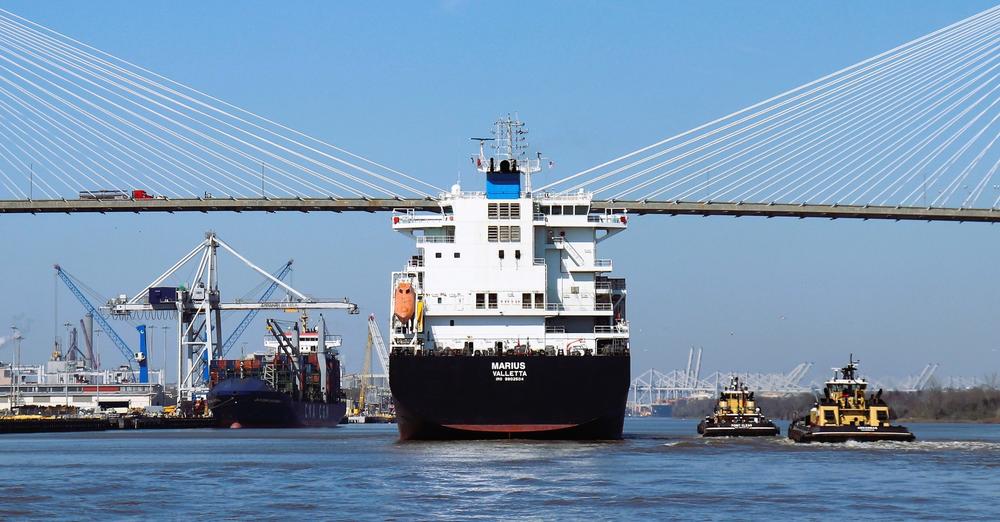
Section Branding
Header Content
Georgia businesses brace for Trump tariffs: 'We have to plan for reality and hope it's not'
Primary Content
LISTEN: With new tariffs looming under a second Trump administration, Georgia's gateway to global trade is bracing for what's to come. GPB's Benjamin Payne reports.

As President-elect Donald Trump prepares for his return to the White House, businesses at one of the nation’s busiest ports are getting ready for possible changes in international trade policy.
Trump's campaign promises included substantial tariffs on imports — a move that could significantly affect commerce through Georgia's bustling Port of Savannah, the second-busiest container shipping port in the U.S., behind only the Port of New York and New Jersey.
During a campaign rally in Savannah last year, Trump painted a rosy picture: "With a world-class port and a world-class workforce, this city will soon become one of the premier export hubs anywhere on Earth, tripling and quadrupling traffic, as your power will lead an American manufacturing boom," he told a roaring crowd of supporters.
But while candidate Trump suggested universal tariffs as high as 20% on all imports, trade analysts anticipate a more nuanced approach once he retakes office.
This uncertainty has created challenges for Savannah's logistics sector, as workers on the ground try to tease out the policy from the rhetoric.
"Whether it's all smoke or not, nobody really knows," said Tom Patterson, who manages logistics for a bicycle importer operating out of the Port of Savannah. "We don't know if it's just hyperbole that he's been spitting, or reality. We have to plan for reality and hope it's not."
Patterson, who spoke to GPB in his personal capacity and not on behalf of his employer, suggested that retailers might leverage potential tariffs to justify price increases planned last year.
"They've already built their profit plans for [2025], and they're going to maintain them, come hell or high water," he said. "Whether their suppliers shoulder the burden of tariffs, that doesn't matter to them — they're going to raise their prices as they've already planned."
Georgia Ports Authority President and CEO Griff Lynch believes that any manufacturing growth spurred by tariffs won't materialize quickly.
"I think it depends on what the goal is here," Lynch said, referring to the incoming Trump administration. "If the goal is to create exports and production manufacturing for the U.S., I think it won't have any impact in the near term. In the long term, certainly it could drive growth to the U.S."
The impact could extend beyond warehouse shelves to grocery aisles, as Savannah's port handles substantial fresh produce shipments, including from the Southern Hemisphere. Recently, Lineage Logistics — the world's largest cold food storage company — established a logistics facility in the nearby city of Port Wentworth.
Lineage vice president of global sales Jim Henderson explained their choice of location at the building's 2023 unveiling: "We looked at facilities all over the world at many different ports, and we said the Port of Savannah is really the perfect spot for us to be, to be able to get this product in [and] get it to market faster. Because it's fresh produce, primarily, it's got a short shelf life."
Back at the port, Patterson said that supply chain flexibility may be reaching its limits, after years of disruption.
"People in the operations world are so tired of 'unprecedented times,'" he said. "We never stopped during COVID and we never stopped during supply chain interruptions in 2021 and 2022. It's just been one thing after another. It just really feels like we're getting to a point where the supply chain and the logistics of it all are not as malleable as they once were."


